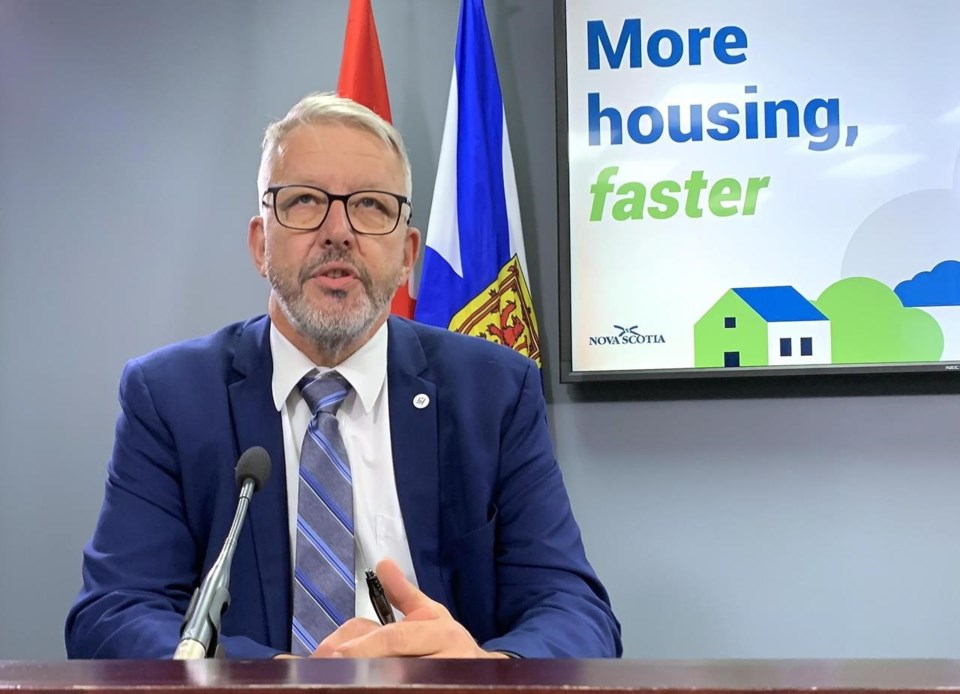HALIFAX — The Nova Scotia government’s plan to increase the annual registration tax for short-term rentals, such as apartments and Airbnbs, is being panned by the province’s opposition parties as inconsequential.
Housing Minister John Lohr said following a cabinet meeting Thursday the government's goal by raising taxes is to encourage people to convert their short-term rentals into long-term ones, but he admitted the plan likely won't do much to address the housing shortage.
“We recognize that it won’t be many, but I will say every unit counts,” said Lohr, about the number of additional long-term rentals the higher taxes would bring. “There will certainly be some.”
The minister said legislative amendments would be introduced during the legislature's fall sitting, which begins Oct. 12, to be followed by regulations that will take effect in April.
Under the changes, Lohr said, the annual tax for owners who rent a room in a home will be $10, while the tax to list an entire apartment, condo or house will range from $240 a year in rural communities to $3,600 in central Halifax.
The tax for accommodations such as hotels and motels will continue to range from $50 to $150, depending on the number of rooms.
Lohr was asked about the discrepancy between the tax in rural areas and in downtown Halifax.
”It’s simply because we know the greatest housing demand is in Halifax Regional Municipality and also the greatest concentration of short-term rentals as well,” he said.
Of the 6,000 registered accommodations in the province there are about 2,100 short-term rentals registered in the Halifax area, including traditional accommodations like hotels and motels, his department said.
“At its face value it’s not going to do anything to increase housing in Nova Scotia,” Liberal Leader Zach Churchill said of the government’s move.
Churchill said that the province’s real estate agents have told him that 70,000 new units are needed just to keep up with the pace of housing pressures by 2030.
To get more short-term rentals on the housing market, he said, the government should force people renting their homes on platforms such as Airbnb to pay commercial taxes for their properties.
“Having a small nominal registration fee isn’t going to do anything at all,” said Churchill, who pointed out that even the higher registration fee in Halifax can be made up quickly through rentals of $400 to $500 a night.
NDP Leader Claudia Chender was equally scathing in her assessment, accusing the government of “grasping at straws” in the absence of a housing plan.
“They are trying to say something to make it look like they are doing something,” said Chender. “We need a lot more action and we need it faster.”
Under current registration rules, all short-term rentals pay a fee of $50 to $150 depending on the number of bedrooms they offer. Accommodations with one to four bedrooms pay $50, accommodations with five or more bedrooms pay $150.
Accommodations on platforms such as Airbnb and Expedia pay an annual registration fee of $500.
Under the government’s proposed changes, the current fine for operators who don’t register with the province -- $1,000 a day, up to a maximum of $7,500 a year -- will also be increased, although the new fine hasn’t been determined.
This report by The Canadian Press was first published Oct. 5, 2023.
Keith Doucette, The Canadian Press




